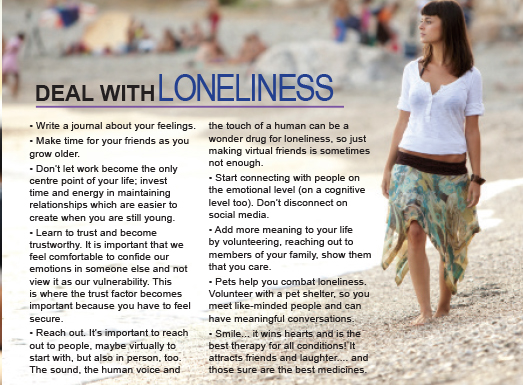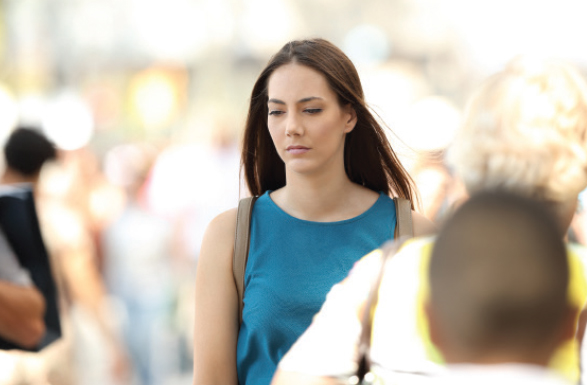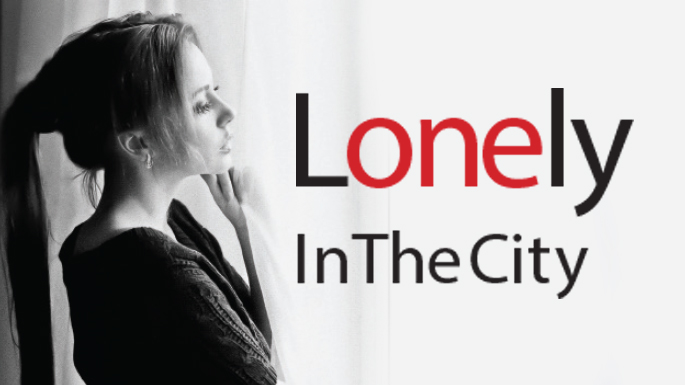Our cities are full of people, our social media list of friends very often run into thousands, but despite that millennials are feeling lonelier and more disconnected than ever before. In fact, recent research indicates that loneliness impacts on health in a greater way than smoking or obesity. If, like a lot of others, you too have been feeling lonely, Aruna Rathod suggests you delve inwards, work upon it and open up a new world for yourself.
At the beginning of this year, the United Kingdom interestingly appointed a minister for loneliness. At a time when there has been a sharp increase in communication tools and social media, it is amazing how loneliness has come to be a major concern for the modern society, that can lead to physical, mental and emotional problems.
Dr Kurien S. Thomas, Counselling Psychologist and Life Coach, Effective Living Inc observes, “Loneliness is slowly going to be a big issue in the near future. The gravity of loneliness would differ from individual to individual as it would depend on how an individual would react to certain circumstances.”
Lonely children make lonely adults
Emotional well-being is a need that is not given much importance by families. Saloni Sawnani, Clinical Psychologist explains, “Parents often don’t have emotional time for their children and feel their responsibility ends with only taking care of the materialistic and survival needs of the child such as food, clothing and shelter. They seldom spend time understanding the child and the child’s feelings as a result of which there is an emotional void created in the child that’s the starting point of loneliness.”
When these children grow up, they believe that immersing themselves in work will probably fill the void, and so they channelise all their time, money and energy in it. “It does help them marginally because they have something to focus on but when they retire, loneliness gets the better of them because they have never invested time or effort on relationships and they no longer have work!” explains Sawnani. Humans are emotional beings and have a number of emotional needs which are as important as food and water. These include the need to be accepted, appreciated, respected, loved and cared for. When these basic emotional needs are not met with, loneliness sets in.
With real life situations, the tragedy is that, in real life friends and relatives may not respond to your mood. This is when gadgets come in and play their role in trying to fill up the void left by loneliness. Dr Thomas states, “Individuals are now gadget-dependent than inter-dependent. Artificial Intelligence which is the Gen-x, could play a very important role in loneliness. We just need to say ‘play a song’ or ask ‘how do you feel’ to the device and the device responds like a friend. Real friends and relatives have been replaced by gadgets.”
Analysing loneliness very closely, Dr Shefali Batra, Psychiatrist and Cognitive Therapist, Mindframes explains, “Aloneness is a purely physical issue, it means being by yourself. Loneliness is something that impacts you psychologically and is a negative feeling. You feel you are not able to connect with people. It could be with your own spouse too—you could be on a holiday together and feel lonely. It means that you are not able to make meaning of the social interaction between the two of you. Even if you are with friends and find a lack of meaning in your social interaction, that is loneliness.”

How to identify that ‘lonely’ feeling and tackle it
Certain symptoms could spell loneliness without you realising it. Lethargy, lesser motivation, panic attacks, feeling too anxious, frequent headaches, pains, unable to connect socially and physically (you may be able to connect virtually) and self-esteem issues could be the symptoms of loneliness. “Loneliness is not depression but could certainly lead to depression,” says Dr Thomas.
Try to seek a solution if you are feeling lonely and want to do something about it. Identify your issues. Dr Batra advises, “To take away the loneliness, identify where and how you have lost meaning in a relationship; try to find out why you do not relate with each other—it could be close family, friends or spouse. Reflect on what you are feeling exactly when you are lonely, become more mindful, become self-aware—is it making you anxious, depressed? What is it doing to your mind? Accordingly, take measures to deal with it. Be a little pro-active and kind to yourself. We can find more meaning and richness in our relationships as we take the risk to be more vulnerable—revealing our authentic feelings rather than attacking or shaming people.”
Why are we getting lonelier?
Changes in modern society are considered to be the causes of loneliness. We live in nuclear family units, often living quite far away from our extended family and friends, and our growing reliance on social technology rather than face-to-face interaction seems to be making us feel more isolated. It means we feel less connected to others and our relationships are becoming more superficial and less rewarding. Human beings are social animals and need to feel that we ‘belong’ to others and feel connected to one another. Social pain is as real a sensation for us as physical pain; researchers have shown that loneliness and rejection activates the same parts of the brain as physical pain.

Are You Lonely?
How often do you spend time alone?
a) Very often because everyone is so busy
b) Never! I make plans with whoever is available
c) Once in a while; I like to be by myself
How would you describe your time alone?
a) I get bored
b) I dread it
c) It rejuvenates me
Do you feel lonely even when there are people around?
a) Yes
b) No
c) Sometimes
Do you find it easy to enjoy with new people?
a) If they match my wavelength
b) I need company even if I am not exactly having the time of my life
c) I don’t prefer new people
How often do you spend time with your friends?
a) Once a week
b) Almost every day
c) Whenever it is convenient
How close do you feel with your family?
a) I wish we spent more time
b) Not so much
c) We are pretty close
Would you watch a movie alone?
a) No, I will wait for my friends to be available.
b) I don’t like doing anything alone.
c) Not having to share the popcorn? Hell yes!
Mostly As: You are a person who loves to be in the company of their people. Going out alone and exploring a newly opened café isn’t exactly your idea of fun but your friends aren’t always available. Every now and then you feel lonely and sad but it goes away when you meet your best friend next. It’s natural to feel lonely when alone, but if you learn to enjoy your company more, you’ll be happier.
Mostly Bs: You lack emotional closeness currently in your life, maybe because of a break-up or relocation. The reason could be any; however, your loneliness is killing your heart! Escaping from alone time will not do you any good. Plus, investing time in people who don’t matter to you is, if anything, useless. Why don’t you sign up for some productive activity? Also, invest time in therapy to get to the root cause of your loneliness and find healthier ways to cope with it.
Mostly Cs: Whenever you feel stressed out in your relationships, you take time out for yourself. You love going to cafés and reading a book, though you enjoy it with your close friends as well. A close-knit circle keeps you happy, even when they’re not around. The best part is you love the company of your own thoughts, and it works in your favour.


